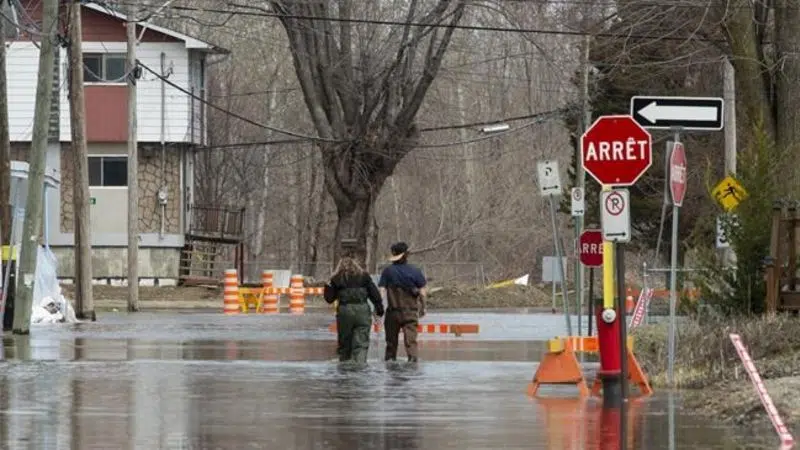
As waters rise, Champagne offers fast-track reviews for flood projects
OTTAWA — Canada’s infrastructure minister is offering flood-ravaged communities in Quebec a fast-track for federal cash to mitigate the dangers of rising waters, hoping to entice requests from a province that has yet to apply for money from a unique fund set up specifically for the purpose.
The “disaster mitigation and adaptation fund” was set up two years ago to dole out $2 billion over a decade, hoping to help communities like those now facing flooding in Quebec, Ontario and New Brunswick reduce the risks from high water, fires, and extreme weather.
The thinking was that every dollar spent on building infrastructure to divert floodwater, for example, would save countless more in reconstruction costs. A 2016 report from the parliamentary budget office predicted federal disaster-assistance payments, to help deal with damage, could hit $900 million next year.


